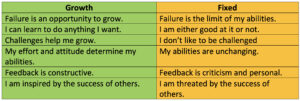In this blog, I want to explore the question – have we, as women been socialized to think we are victims? Or is it possible to work through difficult circumstances and come out as victors? Let me begin by sharing three stories of three women leaders.
Sandy
A good friend of mine obtained the rank of Vice Admiral (three-star) in the US Coast Guard. Sandy is a first in many ways. In retirement, she speaks and volunteers by serving on several Boards. Recently, Sandy was a ranking member and the sole female voice in a virtual meeting when the client posed a question for which she knew a solution. She presented her suggestion, but the men talked over it. The discussion continued to other subjects for a while longer. A junior executive charged with recording the meeting then reiterated her suggestion. At that moment, the men agreed with that solution. Sandy responded with some irritation, “Well, you know, I laid out that idea 30 minutes ago.” The meeting ended with the group agreeing to implement Sandy’s solution.
Later she reflected on this exchange and thought, “Honestly, I responded emotionally. I allowed myself to jump to the conclusion that they did not listen to my idea because I was the sole woman on the call.” Next, she challenged that assumption thinking, “Or maybe I’ve been socialized as a woman to believe I will be overlooked and not heard. Perhaps those on the call were giving my suggestion some thought prior to endorsing it. Also, the note keeper was probably just restating the concept, not attempting to “steal” my idea.” This accomplished leader is humble enough to reflect on and take responsibility for her own actions. Moreover, Sandy has the fortitude to question the current cultural norms and evaluate her own role in perpetuating misperceptions. We can learn a lot from her methodology. You can read more about her leadership philosophy in her inspirational memoir, Breaking Ice & Breaking Glass: Leading in Uncharted Waters.
Lean In!
As women leaders, we are told over and over, “Lean in, demand to be heard.” At one conference, I witnessed one woman speaker, drag a chair behind her as she walked on stage and state, “If you don’t have a seat at the table, bring one with you!”

However, is it really that simple? Can we just demand to be heard, and others will suddenly respond to us?
A Younger Sara
When I was a young Ordnance Lieutenant serving in the US Army in Germany, our unit was deployed to a training facility working round the clock. We made makeshift operations and sleeping quarters using several non-descript buildings. The male Officers were billeted in one large building, whereas the female Officers were assigned to another building with the female enlisted soldiers. Having endured much bias and harassment at West Point, I viewed these sleeping arrangements as a premeditated slight against the women officers. I reasoned we would not be close to the other Officers, especially our Company Commander. In this way, we would be out of the loop on important conversations. Feeling rightly justified, I found the Battalion Supply Officer (S-4), responsible for those arrangements and gave him a piece of my mind. “It is unfair to keep us away from our chain of command and as women officers, we should be housed with our counterparts.” Surprised he responded, “Well, I just assumed you would prefer to be with other women and not sleep in the same place as the men.” I said, “We don’t mind, we can hang blankets for privacy.” He acceded to my demand and the four women officers moved our belongings to the male officer billet. However, that night, we women, got little sleep as the majority of those twenty men sawed logs so loudly that we had little choice but to cover our heads and endure the cacophony. Bleary-eyed and annoyed, the four of us made our way back to the female soldiers building first thing the next morning. Being treated equally, I discovered had its drawbacks.
When I reflect on the situation, I see now that although the women were being treated differently, the S-4 wasn’t acting nefariously. However, I wanted to be “right” and win an argument. I was dragging out my chair and demanding a seat at the table. With greater maturity, I might have inquired about how he decided on the sleeping plan and then suggested could we try out a new arrangement and see if it works. In this way, I might have made my point but also, given myself the ability to graciously back out of the co-sleeping arrangement without losing face. Learning to choose a win-win mentality in emotionally charged situations leads to better outcomes.
To gain the influence we desire, we need to dig deeper and think more broadly.
Brittany
My much younger friend, Brittany, reported to a leader who seemed to dismiss her every idea and his attitude toward her bordered on being hostile. She was a young Captain reporting to a Major in wartime Iraq. As a competent Military Police Officer, her natural inclination is to be very direct and confident in her battlefield support assessments. Her approach served her well in her first deployment to the Middle East. However, with this man, her thoughts were often discounted. Was it because she was a female?
Wisely, my friend thought about her tactics and began to study her boss. He seemed to be drawn to data and facts. So, she adjusted her approach. Instead of coming up with an answer, she would instead present all the data and then ask her boss, “How do you read this information?” In this way, she learned how he reasoned, built trust and with consistent effort created a more successful working relationship. Years later, Brittany retired as a Lieutenant Colonel from the Army and now provides leadership coaching, check out her services at www.brittanyesimmons.com.
What I admire about Brittany’s approach is her ability to sit back, gain perspective and choose another method. She demonstrated emotional intelligence, or the ability to manage one’s emotions and those of others. This is remarkable for someone who was just 26 years old at the time. She did several things well; she picked up on her boss’s non-verbal behaviors and tone and noted that she was not connecting with him. Next, she calmed herself down so she could make a rational choice about how to proceed. Then she observed her boss and came up with a different means of communicating with him. She demonstrated situational leadership, adapting in real-time her approach to a leader who was far different from her previous ones.
To be clear, prejudice and bias continue to exist in the workplace. However, I believe we shortchange ourselves when our immediate response is: “This happened because I am a woman or a minority.” The problem with this approach is that it is one-dimensional. It assumes I have no ability to change the situation. I am a victim, and all those other people need to change. It’s a self-limiting belief system and can be self-fulfilling. If we believe we are victims, we will continue to see ourselves as such.
The Growth or Fixed Mindset
Psychologist Dr. Carol Dweck discovered in her motivational research that people adopt one of two mindsets, growth or fixed. Below is a list of the common beliefs in each of those self-conceptions.

Dweck’s work shows the power of our basic beliefs. Consciously or subconsciously, our mindsets “affect what we want and whether we succeed in getting it.”[1] The growth mindset believes in opportunity and taking risks, while the fixed mindset limits creativity and is threatened by difficulty. When it comes to working in environments where we feel undervalued and dismissed, we can either choose to grow or remain a victim.
Putting it into Practice
Think about a difficult relationship you are presently experiencing. Read over the Growth and Fixed statements again. Is your thinking dominated by a growth or a fixed mindset? If it is fixed, could this explain why you are struggling? In other words, are you limiting yourself by coming to conclusions such as, “I have tried several approaches, and nothing works, she will never change” or, “Why do I need to change, this is how it always is when dealing with people like him.”
If you find yourself in a fixed mindset, I suggest that like Sandy and Brittany, you take a step back and consider another way of viewing the interaction. Instead of your conclusion, what is another equally feasible explanation for their behavior? Is there a new skill you may need to develop to better connect with this person? We could also ask, “Who do I know that is successful at working through a situation like this one?” Then you might analyze what they did or didn’t do that you might incorporate into your next steps. Alternatively, you may decide that this person might be a safe individual to approach and ask for some advice.
In some cases, like my story, we can also learn by replaying a memory and then rewriting how we might have responded or reacted if we could do it over. We could also ask, “How can I approach this issue thinking win-win? What would my tone and delivery look like if I wanted to find a way, where we could both get what we want?
When we accept the fact that we cannot change anyone but ourselves, we open ourselves up to tapping into unlimited resources. We can learn, grow and develop ways to influence others more effectively. We won’t always get things right, yet with a growth mindset, however, we see failure not as fatal but as part of the learning process. Instead, we remain curious, reflective, willing to learn, and ask for help. Through those efforts, we ultimately become more flexible and effective leaders. We will see ourselves not as victims but as victors!

Your thoughts and comments are appreciated.
[1] Farnam Street. (2021, February 5). Carol Dweck: A summary of the two mindsets. Farnam Street. https://fs.blog/carol-dweck-mindset/



